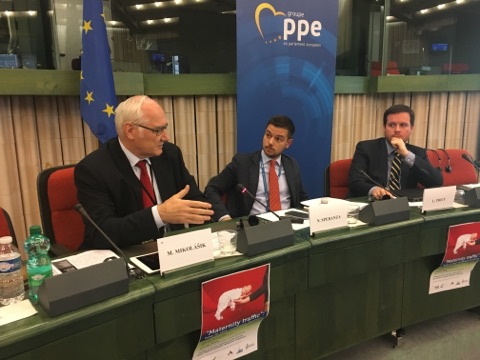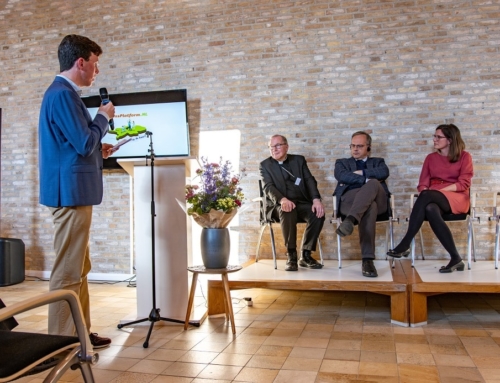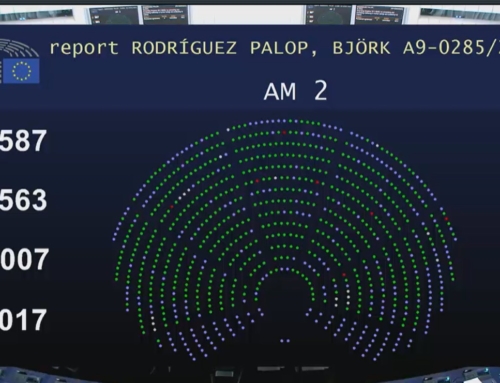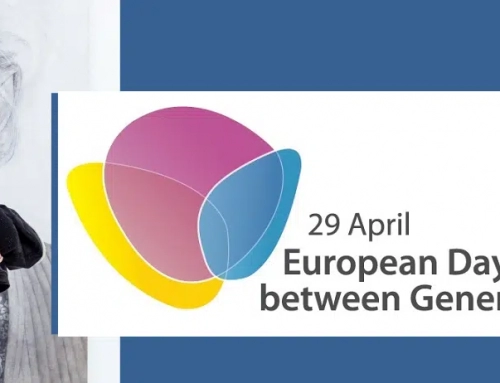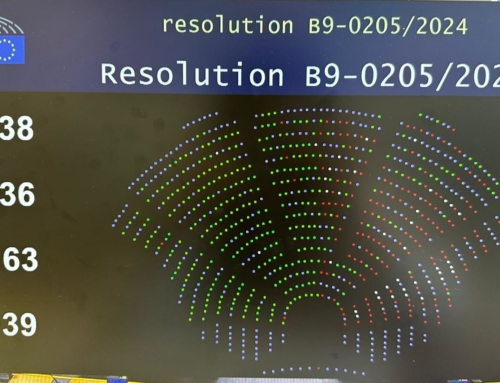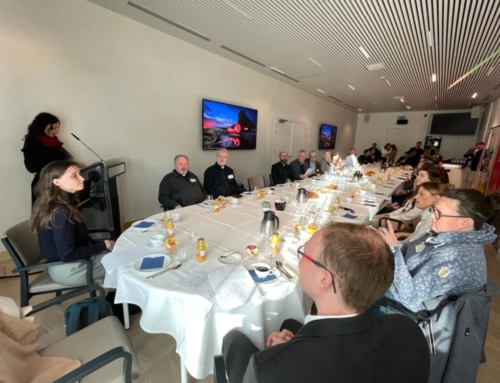Brussels, 26 October 2016
On 25 October 2016, in the European Parliament in Strasbourg, the EPP Working Group on Bioethics & Human Dignity met to discuss on “How to Stop the Surrogacy Business”. Chaired by Mr Miroslav Mikolášik (EPP Member of the European Parliament, Slovakia), the meeting was attended by Members of the European Parliament, EU functionaries and human rights experts.
The Policy Officer of the European Federation of Catholic Family Associations (FAFCE), Mr Nicola Speranza, gave a speech focusing his intervention on the recently rejected recommendation on surrogacy at the Council of Europe.
FAFCE, as an organisation with a participatory status with the Council of Europe, followed this procedure since its very beginning, which led to very ambiguous proposals leaving open doors for surrogacy. The Policy Officer of FAFCE briefly presented the timeline of the procedure until its rejection. In March this year, a first draft report was rejected in the Social Affairs, Health and Sustainable Development Committee and a new version of it was presented in September. At the time, a recommendation was approved for discussion in the Plenary Assembly, although the resolution, which explains the position of the Assembly, was rejected. Finally, on 11 October, the recommendation was rejected, putting an end to the process and sending a clear signal that the Parliamentary Assembly of the Council of Europe does not want to legitimise in any way surrogacy arrangements. Noting that most European countries ban surrogacy, Nicola Speranza argued that “prohibition of surrogacy means recognising that pregnancy is not a service that can be provided or sold” and that “a baby cannot be delivered or purchased”. Recalling the resolution of FAFCE’s Board on this topic, he stated that Motherhood is “a priceless gift to humanity that should be respected and protected”.
Following FAFCE’s intervention, Mr Lorcán Price, Legal Counsel at ADF International, presented a legal perspective on this issue, arguing that – apart from banning it – it is extremely difficult (if not impossible, considering the very nature of the technique), to produce legislation on surrogacy that does not violate the human rights of anyone.

